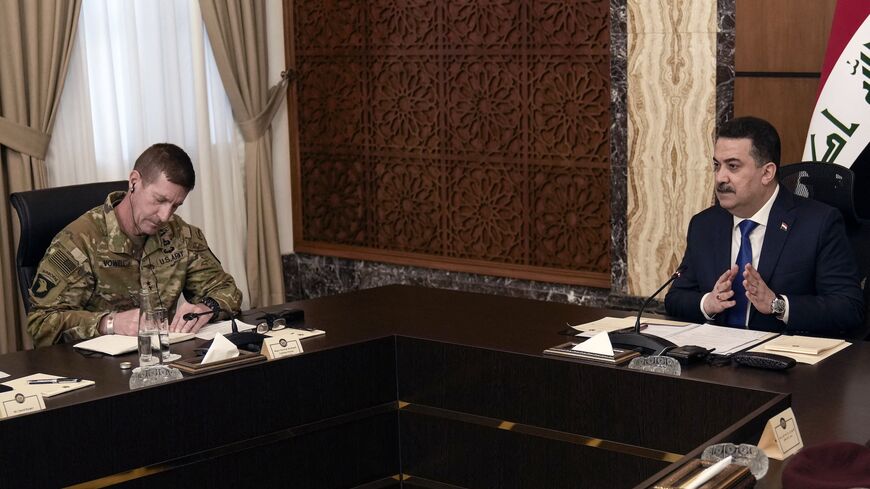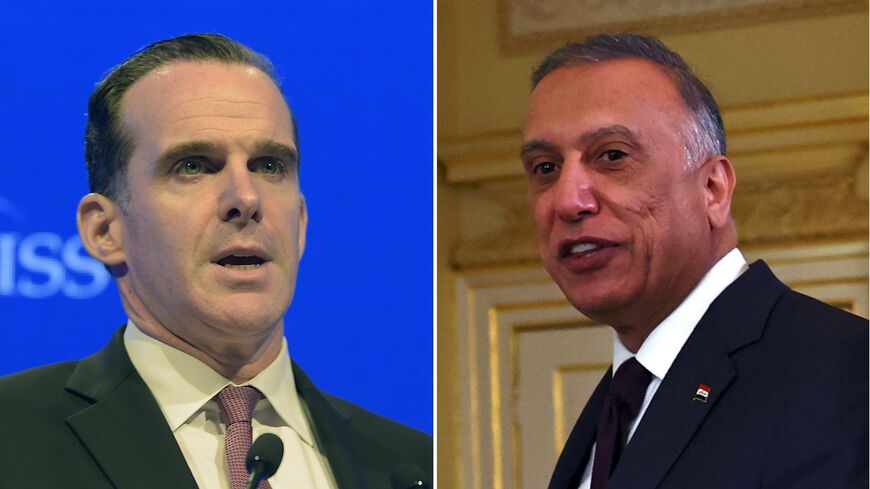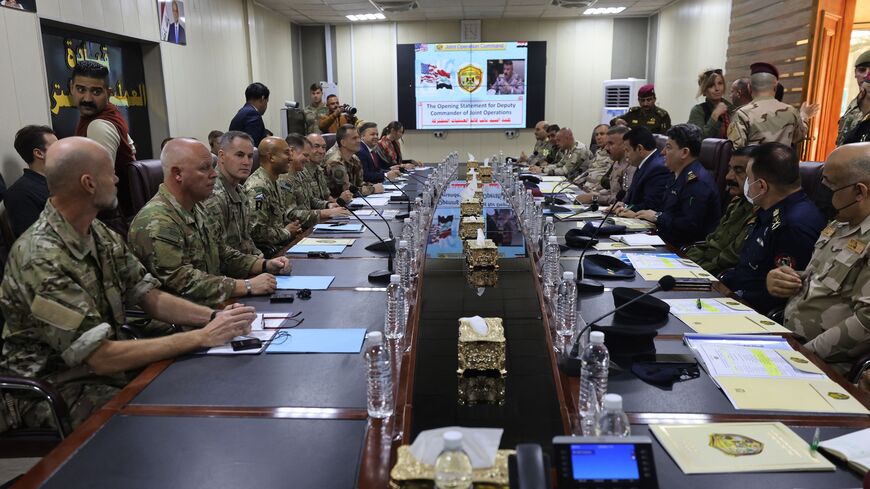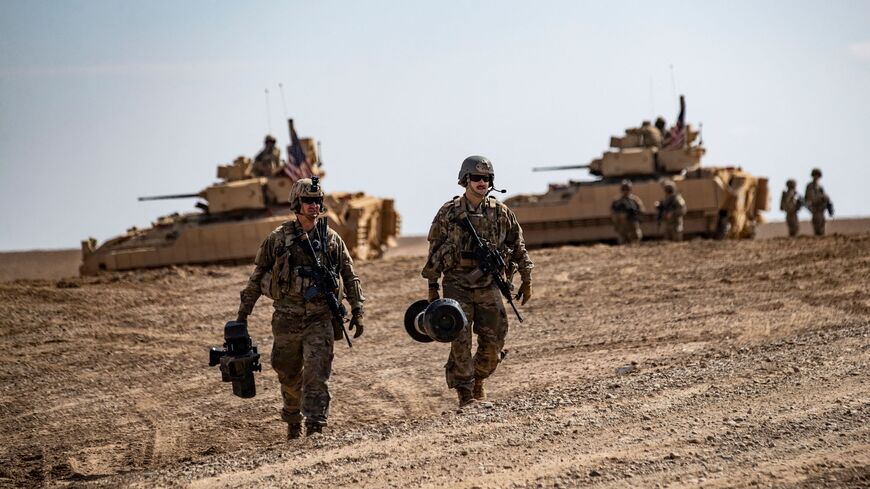US, Iraq to begin talks over potential end to coalition presence
There have been no decisions to withdraw US troops from either Iraq or Syria, US officials say, but the Biden administration is open to weighing future options.
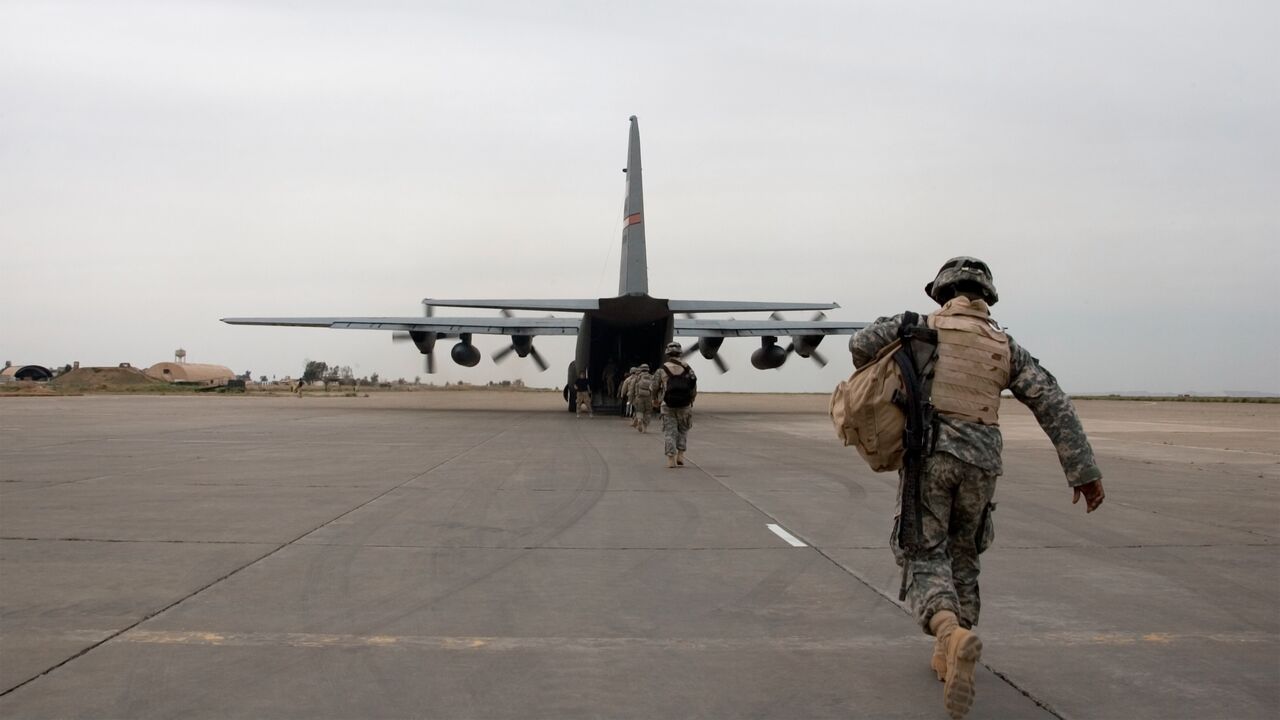
WASHINGTON — The Biden administration is expected to begin dialogue in the coming days with the Iraqi government about the future presence of the 2,500 US troops who remain in the country in the wake of the war against the Islamic State group.
A US military official told Al-Monitor on Wednesday that Washington and Baghdad are “close to a consensus on starting” the discussions, which were agreed to in August 2023 in order to plan ways to transform the US-led international troop presence in Iraq into a normal defense and security relationship.
US Defense Secretary Lloyd Austin stated Thursday that the dialogue “reflects the deep US commitment to regional stability and Iraqi sovereignty.”
Why now: The dialogue under the so-called Higher Military Commission was delayed due to the Oct. 7 attacks in Israel and the resulting war in the Gaza Strip, US officials said.
It is now expected to be held after Iraqi Prime Minister Mohammed Shia al-Sudani has said he would seek from Washington a timeline for an end to the coalition’s presence in Iraq.
Iraq’s Foreign Ministry said Thursday the talks would “formulate a specific and clear timetable” for an eventual drawdown of coalition advisers “and end to the coalition’s military mission against ISIS.”
A senior US defense official on Thursday said the working group-level talks would cover “how the coalition’s military mission will evolve on a timeline” based on assessments about the threat from ISIS, Iraqi military capabilities and “operational and environmental requirements” to prevent the jihadist group’s return.
"The HMC meeting is not a negotiation about the withdrawal of US forces from Iraq,” the senior US defense official said.
Why it matters: The Iraqi prime minister is thought to be facing increased domestic pressure to expel US troops from the country after the US military launched a series of airstrikes targeting Iran-backed militia personnel and facilities in Iraq in recent weeks.
The strikes, authorized by the Pentagon and ordered by top the US commander in the Middle East, Gen. Michael “Erik” Kurilla, came as part of a bid to halt an ongoing stream of rocket, missile and drone attacks on bases used by US forces.
The attacks began Oct. 17 after Israel was accused of bombing a hospital in the Gaza Strip. There have been more than 150 such attacks on US positions in Iraq and Syria thus far, leaving 70 US personnel with minor injuries and one seriously wounded. On Sunday, Iraq's Ain al-Asad air base was targeted by at least a dozen projectiles in the largest volley yet involving ballistic missiles.
US officials have denied the start of the dialogue has anything to do with the recent tit-for-tat with Iran-backed militias. “We have been discussing this for months,” the aforementioned military official told Al-Monitor.
"If anything, we’re here despite the militia attacks, not because of them,” another, more senior US military official said Thursday.
US officials say there has been no decision to withdraw US troops from Iraq.
Iraq's Foreign Ministry said the US envoy in Baghdad, Ambassador Alisa Romanowski, delivered a letter to Iraq’s top diplomat, Fuad Hussein, on Wednesday, without specifying its contents.
A spokesperson for the State Department did not immediately reply to Al-Monitor’s request for comment.
The Islamic State group has largely gone underground in Iraq and Syria, but sleeper cells remain in rural regions and concentrated in prisons and detention centers.
Scattered ISIS networks remain “in survival mode” in Iraq and Syria more than four years after the group's final holdout was defeated on the Syrian side of the Iraqi border in March 2019, a recent Pentagon report assessed.
The senior US military official estimated to reporters on Thursday that roughly 1,000 ISIS fighters remain at large in Iraq and Syria.
“The Iraqi security forces are constantly working their intelligence platforms to detect and track these small ISIS cells,” the official said. ISIS “is not capable, beyond small attacks, currently in Iraq and Syria.”
The United States scaled down its troop presence in Iraq in 2020, consolidating at a handful of key bases amid a previous spate of rocket and drone attacks by suspected Iran-backed militias.
American military personnel there mainly serve in an advisory role to Iraqi commanders nearly a decade after the Iraqi military almost collapsed at the hands of the Islamic State.
Iraq’s military still struggles with coordinating joint ground and air operations, as well as with effectively fielding artillery, the Pentagon’s inspector general has reported.
Biden administration officials say the Iraqi military’s future capabilities and needs are for leaders in Baghdad to determine.
“I think it's fair to say that decades into the future US forces will not be present in Iraq in the current formation that we are today,” the Pentagon’s then-top Middle East policy official, Dana Stroul, said in August 2023.
What’s next: The United States also maintains some 900 troops as part of the coalition in Syria, according to official numbers.
Their presence holds together an alliance of Kurdish-led Syrian forces credited with guarding more than 50,000 Islamic State-linked detainees in makeshift camps and prisons, with few resources.
The US troop presence relies heavily on logistics from US forces around Erbil, in Iraq’s Kurdistan region.
Biden’s National Security Council has begun preliminarily reviewing a potential exit strategy from Syria, Al-Monitor’s Amberin Zaman reported exclusively this week — though no decisions have yet been made, officials insist.
Asked by Al-Monitor, senior US officials speaking to reporters on Thursday wouldn't say whether they envisoned a US military presence in Syria after a potential future withdrawal from Iraq. Pentagon officials have previously said no such formal request has been made by Baghdad.
But one senior US military official said that one of the working groups will be responsible for discussing "transition formations" – or potential changes to the US footprint – with the Iraqi government.
Know more: Read Al-Monitor’s reporting on the establishment of the US-Iraq Higher Military Commission last summer.



